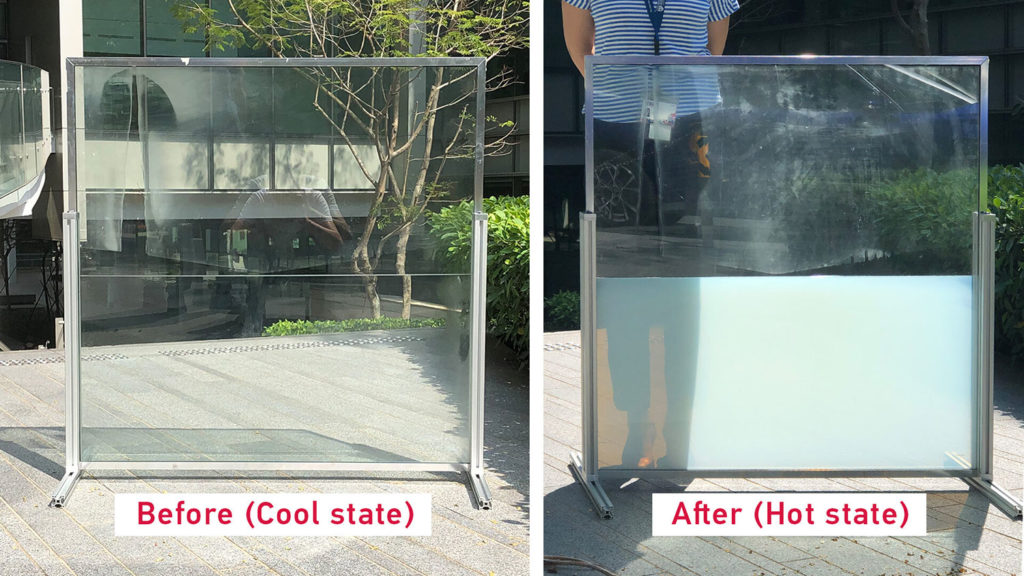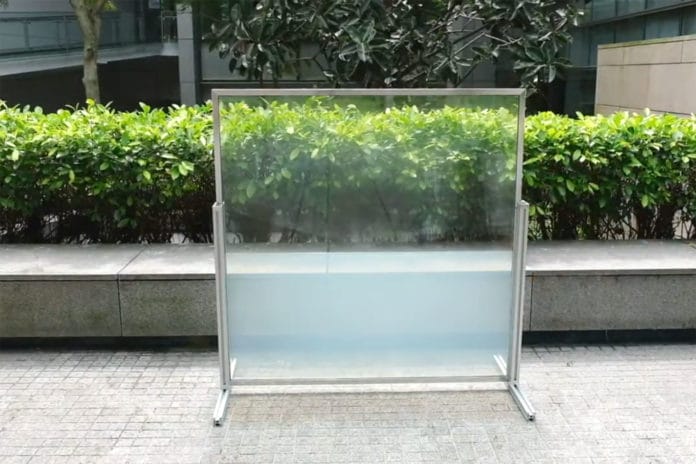Windows are a key component in a building’s design, but they are also the least energy-efficient part. Due to the ease with which heat can transfer through glass, windows have a significant impact on the heating and cooling costs of a building. However, the heating and cooling of the house are much more complicated.
To reduce the need for energy-intensive air conditioning, scientists from the Nanyang Technological University, Singapore (NTU Singapore), have developed a ‘smart window,’ made using a liquid that combines solar regulation and heat storage to cut off building energy consumption. The smart window is developed by placing hydrogel-based liquid within glass panels that can simultaneously block the sun to regulate solar transmission while trapping thermal heat that can be released through the day and night.

The liquid is a mixture of micro-hydrogel, water, and a stabilizer, which are trapped between two layers of glasses. The water absorbs a high amount of heat before it begins to get hot – a phenomenon known as high specific heat capacity. Thanks to the hydrogel, the liquid mixture turns opaque when exposed to heat, thus blocking sunlight.
When the temperature drops, the mixture returns to its original, ‘clear’ (transparent) state, allowing light and heat to pass. Besides, the high heat capacity of water allows a large amount of thermal energy to be stored instead of getting transferred through the glass and into the building during the hot daytime. The heat will then be gradually cooled and released at night.
The liquid window can reduce up to 45% of heating, ventilation, and air-conditioning energy consumption in buildings in simulations, compared to traditional glass windows. It is also 30% more energy-efficient than commercially available low-emissivity (energy-efficient) glass while being cheaper to make.
The NTU research team conducted some real-world tests in hot (Singapore, Guangzhou) and cold (Beijing) environments that showed significant results in regulating and absorbing solar heat. Soundproof tests also suggested that the smart liquid window reduces noise 15% more effectively than double-glazed windows. The team believes that their innovation is best suited for use in office buildings, where operating hours are mostly in the day.
Researchers at Loughborough University (UK) are working on a similar concept, which uses plane water to heat and cool the buildings without requiring an additional energy supply.
